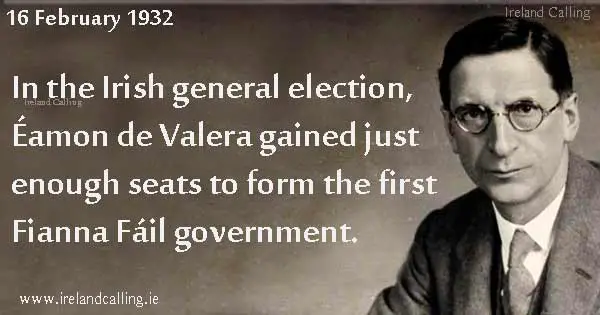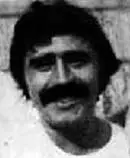february-top.html
1822 James Thomson was born on this day in Belfast in 1822. He moved to Glasgow as a child and became a leading engineer, particularly in the field of water transport.
Click here to read about more great Irish scientists
* * *
1902 Delia Murphy was born on this day in County Mayo in 1902. She was a popular singer and produced records throughout her life, and is often referred to as the ‘Queen of Connemara‘, the name of her 1962 LP.
Delia Murphy was also one of the people that helped Father Hugh O’Flaherty save thousands of Jewish people from the Nazis during the second World War.
Click here to read more about Hugh O’Flaherty
Liam Clancy held Delia Murphy in high esteem as someone who played an essential role in Irish traditional music. He said;

I grew up in the height of what could be called The National Inferiority Complex in Ireland. Irish people were very sensitive to the pig-in-the-parlour, ‘dirty Irish’ image, and they even became ashamed of their own music and songs.
But what we must remember about Delia Murphy was the context of the times when she started recording. We were coming out of desperate poverty, and it wasn’t fashionable any more to sing the ballads, or come-all-ye’s, as my mother used to call them.
But, there was Delia Murphy! And it gave us all a feeling of confidence and a feeling of value that there was something to our traditions, and that we had no need to be ashamed of it, because she wasn’t. And she became a heroine and the most popular singer in the country.
Delia Murphy singing The Boston Burglar (also known as Boston City)
See lyrics and chords to The Boston Burglar
* * *
1932 The Irish general election took place on this day in 1932. Cumann na nGaedheal based their election campaign on their previous ten years in government. They had steadied the ship after the unrest of the Irish War of Independence. However, they struggled to gain support as they didn’t have a clear plan on how to tackle the downturn in trade and economy that Ireland was suffering.

The opposition, Fianna Fáil made numerous promises of action if they got in power. They said they would release all IRA prisoners and abolish the Oath of Allegiance, in which members of the Irish parliament had to swear their faithfulness to the King of England. Éamon de Valera gained just enough seats to form the first Fianna Fáil government.
Click here to read about more Irish history
* * *
 2008 Brendan Hughes died on this day in 2008. Hughes was born in Belfast and grew up an Irish republican. He was known as “The Dark” and quickly rose through the ranks of the Provisional IRA. Hughes was the commanding officer behind the Bloody Friday attacks in 1972, when 22 bombs went off in Belfast killing nine people.
2008 Brendan Hughes died on this day in 2008. Hughes was born in Belfast and grew up an Irish republican. He was known as “The Dark” and quickly rose through the ranks of the Provisional IRA. Hughes was the commanding officer behind the Bloody Friday attacks in 1972, when 22 bombs went off in Belfast killing nine people.
He was arrested and sent to prison but escaped in a rolled up mattress in a dustcart. He changed his identity to Arthur McAllister and returned to Belfast to take control of the Provisional IRA. Police arrested him again after a tip off and this time he was sentenced to 15 years in prison.
He became head of all IRA prisoners and in 1978 he gave the order for the ‘dirty protest’, where the prisoners refused to leave their cells to wash or shower or empty their chamberpots. This led to disgusting conditions in cells, but served to only increase the morale of the IRA prisoners. They composed a list of five demands that they wanted to be met by the British government. The demands included the right not to wear a prison uniform and the right to one letter, one parcel and one visitor a week.
The British government wouldn’t back down and were helped by the European Commission of Human Rights ruling that the conditions in the cells were self-inflicted with the aim of gaining political sympathy.
Hughes and six other prisoners went on hunger strike in order to achieve their five demands. The British government appeared to be relenting and composed a thirty page proposal to end the strike. One hunger striker, Sean McKenna was on the brink of death after 53 days and Hughes called an end to the strike as the government proposal was still in transit. However the British proposal was not acceptable to the IRA and a second hunger strike began, this time ending in ten men starving themselves to death before an agreement was struck.
Hughes was released from prison in 1986 and initially stayed with Gerry Adams. He became critical of the leadership of Sinn Féin feeling they had abandoned their nationalist soul, and in 2000 spoke out against them allowing firms in Belfast to pay former prisoners low wages.
See overview of The Toubles here
february-bottom.html